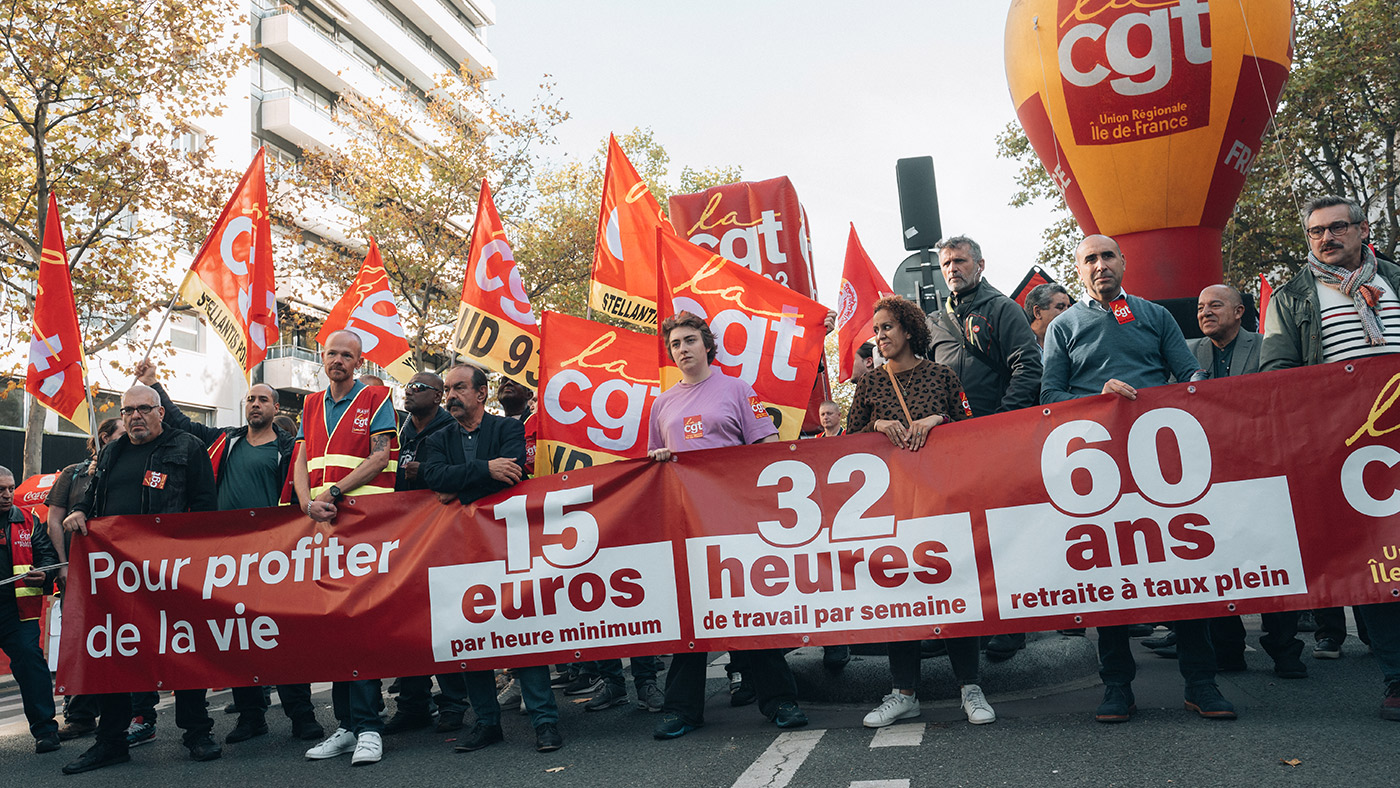How the world views France’s autumn of discontent
Over recent weeks, industrial action has brought France to a standstill

A free daily email with the biggest news stories of the day – and the best features from TheWeek.com
You are now subscribed
Your newsletter sign-up was successful
Here we go again, said Gilles-William Goldnadel in Le Figaro (Paris) – the familiar sight of France being held to ransom by the “extreme left”. Over recent weeks, industrial action has brought trains and buses to a standstill, and even caused vital maintenance work on nuclear power plants to be delayed. More damaging still, however, have been the strikes at some of our largest fuel depots, which have led to fuel shortages at almost a third of our petrol stations, and inconvenienced millions of ordinary citizens.
The disruption began when workers at TotalEnergies and ExxonMobil walked out to demand higher salaries in late September, said Ellen Francis in The Washington Post. But it has grown into a movement reflecting “broader discontent and worries” over soaring living costs, and was followed last week by a “nationwide strike” and clashes between protesters and riot police on the streets of Paris. The unrest, which echoes the 2018 “yellow vest” movement, is proving a major setback for President Macron.
There are two main trade union families in France, said Gilles Paris in Le Monde (Paris). The “reformists”, represented primarily by the trade union federation CFDT (which has more than 620,000 members), have already struck a deal with oil companies over pay. But the second group, the so-called “revolutionaries”, are more hardline and are continuing to strike.
The Week
Escape your echo chamber. Get the facts behind the news, plus analysis from multiple perspectives.

Sign up for The Week's Free Newsletters
From our morning news briefing to a weekly Good News Newsletter, get the best of The Week delivered directly to your inbox.
From our morning news briefing to a weekly Good News Newsletter, get the best of The Week delivered directly to your inbox.
They’re spearheaded by the more radical trade union federation, CGT; by La France Insoumise, the populist left-wing party of former presidential candidate Jean-Luc Mélenchon; and by the Communist Party. Surfing the wave of this unrest to boost his own party’s fortunes, Mélenchon has tried to revive the spirit of 1968, “the glory days of French social struggle”, by demanding nationwide strikes to force through big salary increases in the private and public sectors. And though the government has used the law to force “essential” workers back to work at some refineries, it still has much to lose if walkouts continue.
Macron’s position is made worse by voters denying his party a majority in June’s parliamentary elections, said Sylvain Pattieu in Libération (Paris). Already “weakened”, he now faces a wave of dissatisfaction about everything from soaring corporate profits to the climate crisis.
How very French this unrest is, said El País (Madrid). France has the lowest inflation rate of any in the EU (6.2%), and has spent more than the others “to reinforce the social cushion in the face of rising prices and the winter of forced energy savings”. Yet, still buying into the French “revolutionary myth”, its workers are treating the streets as “a central stage of political combat”. Now, as the economic outlook darkens and Europe grapples with war in Ukraine, the risk of social unrest spreading to other countries is all too real. “France is a warning.”
A free daily email with the biggest news stories of the day – and the best features from TheWeek.com
-
 6 of the world’s most accessible destinations
6 of the world’s most accessible destinationsThe Week Recommends Experience all of Berlin, Singapore and Sydney
-
 How the FCC’s ‘equal time’ rule works
How the FCC’s ‘equal time’ rule worksIn the Spotlight The law is at the heart of the Colbert-CBS conflict
-
 What is the endgame in the DHS shutdown?
What is the endgame in the DHS shutdown?Today’s Big Question Democrats want to rein in ICE’s immigration crackdown
-
 Corruption: The spy sheikh and the president
Corruption: The spy sheikh and the presidentFeature Trump is at the center of another scandal
-
 Putin’s shadow war
Putin’s shadow warFeature The Kremlin is waging a campaign of sabotage and subversion against Ukraine’s allies in the West
-
 Greenland’s capital becomes ground zero for the country’s diplomatic straits
Greenland’s capital becomes ground zero for the country’s diplomatic straitsIN THE SPOTLIGHT A flurry of new consular activity in Nuuk shows how important Greenland has become to Europeans’ anxiety about American imperialism
-
 The fall of the generals: China’s military purge
The fall of the generals: China’s military purgeIn the Spotlight Xi Jinping’s extraordinary removal of senior general proves that no-one is safe from anti-corruption drive that has investigated millions
-
 Epstein files topple law CEO, roil UK government
Epstein files topple law CEO, roil UK governmentSpeed Read Peter Mandelson, Britain’s former ambassador to the US, is caught up in the scandal
-
 Iran and US prepare to meet after skirmishes
Iran and US prepare to meet after skirmishesSpeed Read The incident comes amid heightened tensions in the Middle East
-
 Syria’s Kurds: abandoned by their US ally
Syria’s Kurds: abandoned by their US allyTalking Point Ahmed al-Sharaa’s lightning offensive against Syrian Kurdistan belies his promise to respect the country’s ethnic minorities
-
 Israel retrieves final hostage’s body from Gaza
Israel retrieves final hostage’s body from GazaSpeed Read The 24-year-old police officer was killed during the initial Hamas attack